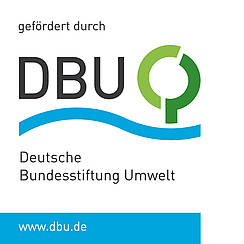Efficiency increase of household refrigerators by the use of polymer based phase change materials
Although the power consumption of a single refrigerator seems low, their collective nearly full year usage combined with an almost complete market penetration exhibit a substantial energy savings potential. A refrigeration cycle’s power demand is determined primarily by the difference between liquefaction and evaporation temperature. The introduction of a phase change material (PCM) reduces power consumption significantly since the liquefaction temperature is decreased whilst at the same time the evaporation temperature is elevated. A practical use of PCM seemed rather uneconomically because its low thermal conductivity, supercooling effects, potential toxicity as well as costs affiliated with encapsulation to protect against leakage. Within the scope of a DBU (Deutsche Bundesstifung Umwelt) funded project, in combination with the industrial partners Miele & Cie. KG and Pfinder KG, a highly capacitive, dimensionally stable latent heat storage on the basis of block-copolymer bounded organic paraffin derivatives is developed. Adding a certain graphite, depending on mass fraction w, leads to an increase in thermal conductivity from an original value of around 0.19 W/(m K) up to 3.95 W/(m K). Integrating such PCM on the liquefier the vaporiser yields a reduction in power consumption of around 10% while the combination of both leads to an overall reduction of 17%.
| Contact: | Prof. Dr.-Ing. habil. Jadran Vrabec Thermodynamics and |
| Project coordinator: | Prof. Dr.-Ing. habil. Jadran Vrabec |
| Duration: | 3 years |

